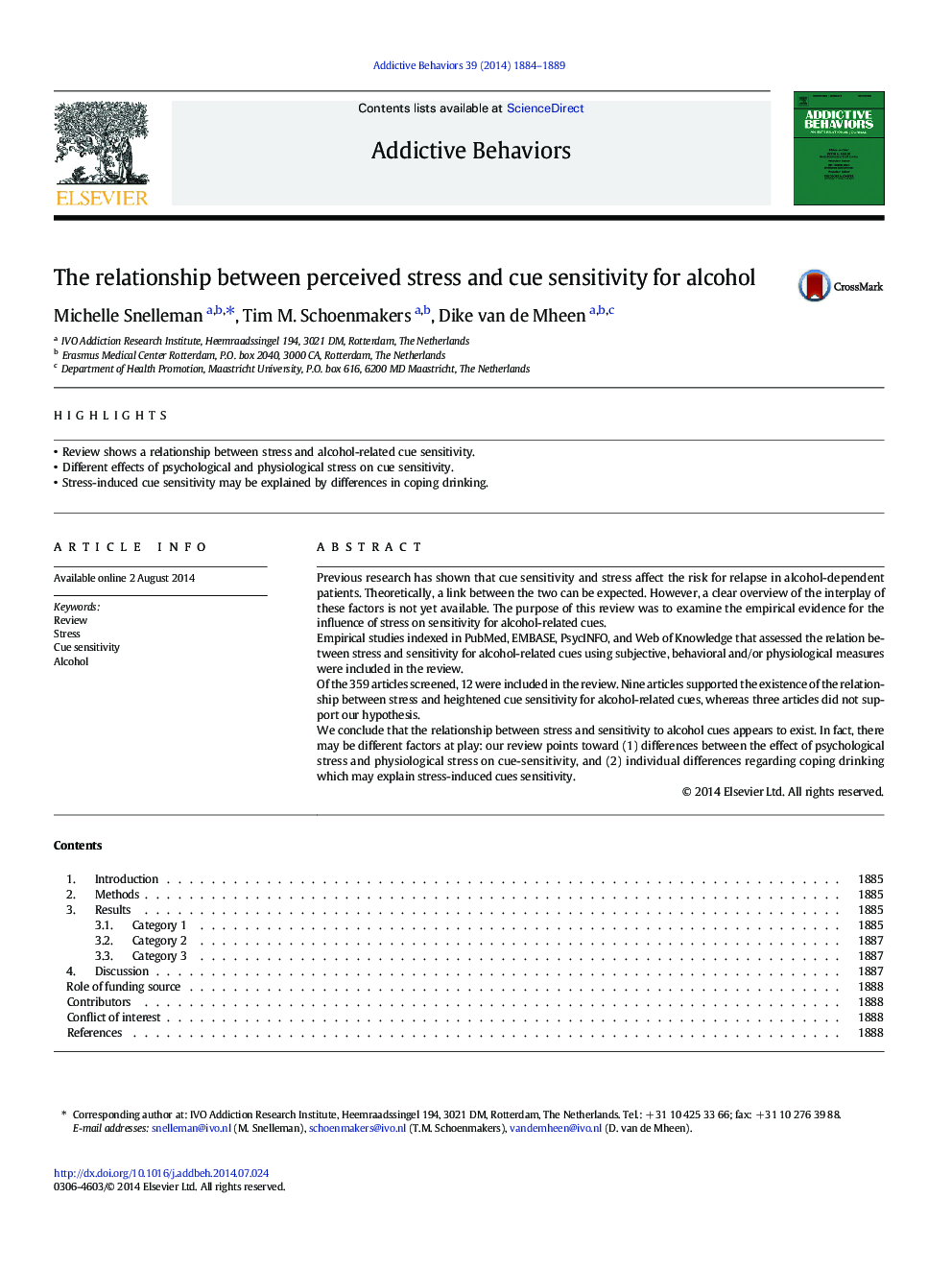| Article ID | Journal | Published Year | Pages | File Type |
|---|---|---|---|---|
| 898767 | Addictive Behaviors | 2014 | 6 Pages |
•Review shows a relationship between stress and alcohol-related cue sensitivity.•Different effects of psychological and physiological stress on cue sensitivity.•Stress-induced cue sensitivity may be explained by differences in coping drinking.
Previous research has shown that cue sensitivity and stress affect the risk for relapse in alcohol-dependent patients. Theoretically, a link between the two can be expected. However, a clear overview of the interplay of these factors is not yet available. The purpose of this review was to examine the empirical evidence for the influence of stress on sensitivity for alcohol-related cues.Empirical studies indexed in PubMed, EMBASE, PsycINFO, and Web of Knowledge that assessed the relation between stress and sensitivity for alcohol-related cues using subjective, behavioral and/or physiological measures were included in the review.Of the 359 articles screened, 12 were included in the review. Nine articles supported the existence of the relationship between stress and heightened cue sensitivity for alcohol-related cues, whereas three articles did not support our hypothesis.We conclude that the relationship between stress and sensitivity to alcohol cues appears to exist. In fact, there may be different factors at play: our review points toward (1) differences between the effect of psychological stress and physiological stress on cue-sensitivity, and (2) individual differences regarding coping drinking which may explain stress-induced cues sensitivity.
